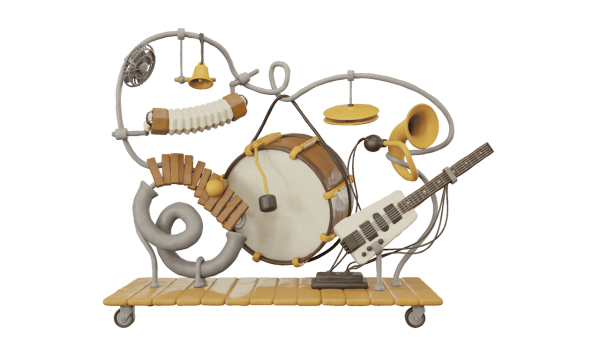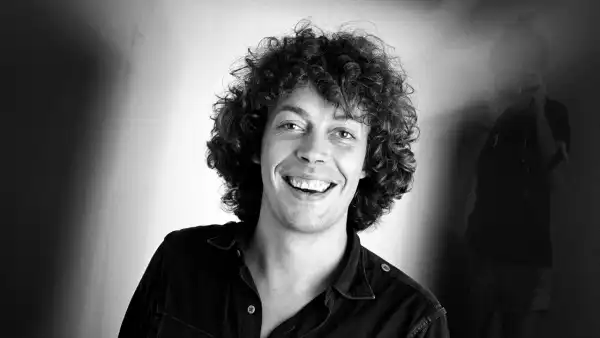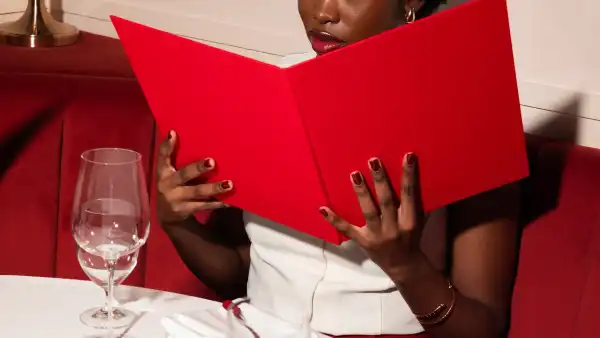
Save this storySave this storySave this storySave this story
Music critics—myself included—have spent much of the past several years bemoaning the decline of capital-“E” Events in music: no new superstars to crown, no more tentpole albums to unify us, no more hits that can hold our attention for more than a day or two. In many ways, 2024 provided a course correction for this narrative: Taylor Swift continued to dominate in the charts and in the culture; Charli XCX was transformed into a global superstar by way of “BRAT,” and the months-long feud between Drake and Kendrick Lamar produced not just a smash hit in “Not Like Us” but a pop-cultural saga whose ramifications will certainly stretch into next year.
I had a baby at the beginning of this year, which means I found myself feeling grateful for one industry shift that has persisted: the predominance of singles. There were albums that grabbed me—Sabrina Carpenter’s “Short n’ Sweet,” for one—but during a year when my attention was especially fractured, I consumed new music one song at a time. Here are some of my favorites.
“I Luv It”
Camila Cabello, featuring Playboi Carti
Women in pop music had a historic amount of fun this year. Camila Cabello’s latest album, “C, XOXO” was an underappreciated highlight. The centerpiece of the record is “I LUV IT,” a strange and ecstatic track that lives somewhere in the long tail of the hyperpop wave. (Many have speculated that some of Cabello’s stylistic gestures, like the frenzied chorus “I luv it, I luv it, I luv it, I luv it,” may even be indebted to Charli XCX, or at least in conversation with “BRAT.”) The song features a clever interpolation of Gucci Mane’s “Lemonade,” a warbly, incomprehensible guest appearance from Playboi Carti, and an abrupt beat shift suited for a night at Berghain.
“Million Dollar Baby”
Tommy Richman
Sometimes songs blow up at warp speed because of some nefarious industry marketing schemes. But sometimes, as in the case of “Million Dollar Baby”—which became ubiquitous seemingly overnight—a song is just irresistible. Richman, a twenty-four-year-old from Virginia, has been releasing music independently since 2016, but there’s a reason “Million Dollar Baby” made the splash that it did. It’s a canny reimagination of syrupy Southern hip-hop, suffused with the cadences and vocal inflections of R. & B. and soul, and delivered with the quintessential blind swagger of a young white guy toeing the line between celebration and appropriation. The low, squelching funk of the beat and Richman’s high falsetto were tuned to such a uniquely perfect frequency that everyone was happy to hear them, again and again, and again.
“Challengers”
Trent Reznor and Atticus Ross
Luca Guadagnino would not have been able to walk the tonal tightrope of “Challengers”—a sports drama with serious comedic undertones, and a sizzly love triangle—without the work of Trent Reznor and Atticus Ross, who provided the movie’s epic, propulsive score. The film opens on the tennis court during a high-stakes match between the two male leads, and after a quiet first minute of play, Reznor and Ross’s throttling, techno-informed title track begins in perfect synchronicity with the camerawork. It makes for a bracing and unforgettable introduction, and it establishes a pairing that is ultimately more successful than any of the film’s romances: the union of techno and tennis.
“Plutoski”
Future
Before I had my daughter, in January, my husband and I promised each other we’d be the kind of household where a lot of music is played. We had good intentions, but in reality, a baby’s nap schedule does not provide ample opportunities for music listening. My daughter has an affinity for jingles, and her favorite “song” is the two-second Netflix app startup noise. So when, at seven months, she seemed to connect with Future’s “Plutoski,” a highlight off of his September release, “Mixtape Pluto,” it felt like a victory. The song is quintessential Future, stubbornly entrenched in the flippant mode he knows best: he’s mumbly and unbothered over a sinister, skittering beat. My daughter responded in the way I imagine Future would admire: with a faint little bounce and a loose shake of her hands, a move just shy of proudly disinterested.
“Not Like Us”
Kendrick Lamar
This beef-ending smash hit was an unlikely marvel: a defiantly West Coast track turned national anthem, a club hit recorded by an angsty intellectual, and an angry, dense diatribe with an indelible hook. Produced by DJ Mustard, one of L.A.’s most influential rap producers, the beat’s finger snapping—a West Coast signature—telegraphs a regional pride and identity and makes an implicit dig at Drake’s persistent style-hopping. It is not an exaggeration to say this song changed the course of music history. On top of that, it’s still fun to listen to.
“The Tortured Poets Department”
Taylor Swift
The Taylor Swift fame machine emitted so much noise this year that it started to become an omnipresent din. I enjoyed her latest album, “The Tortured Poets Department,” more than most critics did, mostly because I thought it was an extremely bold move to release so many thinly veiled lyrics about her ex-boyfriend, Matty Healy, just as her relationship with Travis Kelce was becoming central to her public image. The most memorable moment from “The Tortured Poets Department” arrives on the title track, the most unvarnished examination of her relationship with Healy. It’s a song that shored up Swift’s lyric-writing bona fides at a time when some fans and critics worried her pen was drying up. It’s both a kiss-off and a declaration of romance, packed with tiny, evocative details. (“You smoked, then ate seven bars of chocolate / We declared Charlie Puth should be a bigger artist,” she sings.) One especially potent line applies not just to Swift and Healy’s romance but to a generation of young people trapped in an overly nostalgic and referential culture and maybe a little deprived of real-life experience. “You’re not Dylan Thomas, I’m not Patti Smith,” she says. “This ain’t the Chelsea Hotel, we’re modern idiots.”
“Whatchu Kno About Me”
GloRilla and Sexyy Red
The union of Glorilla and Sexyy Red, two of the most swaggering breakout female rap stars in modern history, could have gone differently: between the two of them, there could be too much bravado for one track to contain. Instead, though, this Memphis-meets-St. Louis single finds the two of them casually balancing out each other’s bold, self-assured energy. A full-length collaborative album is on my 2025 wish list.
“Sun”
Rahill
The inclusion of Rahill’s “Sun” on this list is, in part, penance for not finding a way to write about her solo-début record, “Flowers at Your Feet,” when it came out last year. Rahill Jamalifard, an Iranian American singer-songwriter and d.j., pulls together a set of eclectic touchstones—sixties soul and folk, garage rock, and trip-hop—to produce an inventive style of warm and wistful indie pop. So she was a fitting inclusion on “Like Someone I Know,” an album released this year in tribute to the late sixties singer-songwriter Margo Guryan. Guryan, a jazz enthusiast who eventually waded into the pop universe and later became a cult fascination of modern indie musicians, had a signature sweetness to her voice that Rahill embodies. Her interpretation of Guryan’s “Sun” is not a faithful cover—it’s inflected with new psychedelic flourishes—but her plainspoken and knowing delivery makes you feel as if she is in dialogue with the singer’s spirit.
“Rainbow”
AyooLii, POLO PERKS <3<3<3, and FearDorian
This trio is a reminder that online music culture can still produce moments of utopian ingenuity, rather than washed-out, streaming-optimized sameness. As solo artists, these guys hail from disparate geographic scenes—AyooLii is from Milwaukee, POLO PERKS <3<3<3 is from Harlem, and FearDorian is from Atlanta. But the album they released together this year, “A Dog’s Chance,” is gleefully untethered to time and space—wacky, boisterous, feel-good rap at the vanguard of experimental hip-hop. This song, which uses Israel Kamakawiwo’ole’s “Somewhere Over the Rainbow,” pushes the art of sampling to an absurdist extreme. The track is a comedy of contrast, the haunting coo of Kamakiwiwo’ole’s voice and ukulele in a harebrained conversation with AyooLii as he shouts wildly.
“Hate Me”
Lil Yachty & ian
The Atlanta rapper Lil Yachty emerged in 2016 as a screwball Internet sensation with bright-red braids who sampled the “Rugrats” theme song. In the years since, he’s evolved into one of the hardest-working, most curious, and inventive artists making music today. He’s a tireless explorer of regional rap scenes and an insatiable music fan, and he has released a steady stream of satisfying and unexpected collaborations in recent years. This year, he teamed up with one of rap’s most contentious new breakouts: Ian Smith (stage name ian), a proudly preppy rugby player who made a pivot to Internet rap. The result, “Hate Me,” is a slick and muted track on which the pair draw dense, confident rapping out of each other. It is the sound of a torch being passed from one enfant terrible to another.
“Diet Pepsi”
Addison Rae
Addison Rae, once a poster child of the COVID-era TikTok dance boom, is leveraging her tens of millions of followers into a pop career. This single, a whispery banger with some shades of Lana Del Rey’s ultra-feminine camp, is much less cynical and much more interesting than you’d expect. I anticipate that 2025 will push her further into the delicious, nebulous region between pop star and conceptual-art savant. ♦
Sourse: newyorker.com






